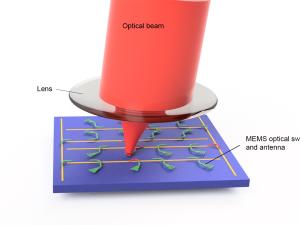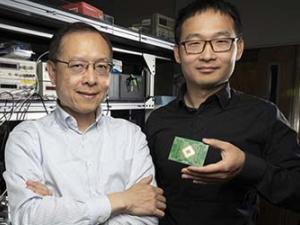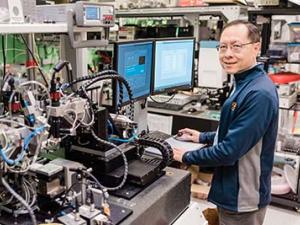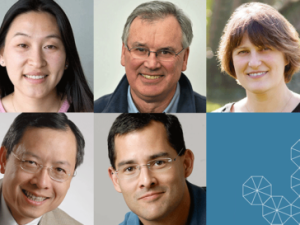

Research Bio
Current Research Projects
- Large-scale silicon photonic switches for data center networks
- Silicon photonic Super-Switch
- Solid-state LiDAR
- Optical antenna-enhanced nano-LED for energy-efficient optical interconnects
- Optoelectronic tweezers and Optofluidics
Research Expertise and Interest
silicon photonics, MEMS, photonic integrated circuits, data center networks, 3D sensing, solid state LiDAR, optofluidics
In the News
Tiny Switches Give Solid-State LiDAR Record Resolution
Work led by UC Berkeley researchers could lead to new generation of powerful, low-cost 3D sensors for autonomous cars, drones, robots, smartphones and more.
New chip could lead to cheaper and better medical imaging devices and self-driving cars
Berkeley engineers have created the fastest silicon-based, programmable two-dimensional optical phased array, built on micro-electro-mechanical systems (MEMS). This chip could lead to cheaper and more efficient medical-imaging devices, optical communications and holographic televisions. It could also give rise to more robust light detection and ranging (LiDAR) sensors for self-driving cars.
Largest, fastest array of microscopic ‘traffic cops’ for optical communications
Engineers at the University of California, Berkeley have built a new photonic switch that can control the direction of light passing through optical fibers faster and more efficiently than ever. This optical “traffic cop” could one day revolutionize how information travels through data centers and high-performance supercomputers that are used for artificial intelligence and other data-intensive applications.
Literally Switching Strategies to Handle the Internet Data Flood
Cloud applications and the ever-increasing demand by large enterprises to transmit and analyze “big data” are stretching the capacity of even the largest data center servers as traditional switches become data flow bottlenecks. Ming Wu has invented a new optical, or photonic, switch capable of record-breaking speed that can be fabricated as integrated circuits so they can be mass-produced, keeping the cost per device low.
Five innovators join the ranks of the Bakar Fellows
Five UC Berkeley faculty innovators have been selected for the Bakar Fellows Program, which supports faculty working to apply scientific discoveries to real-world issues in the fields of engineering, computer science, chemistry and biological and physical sciences.
Loading Class list ...





